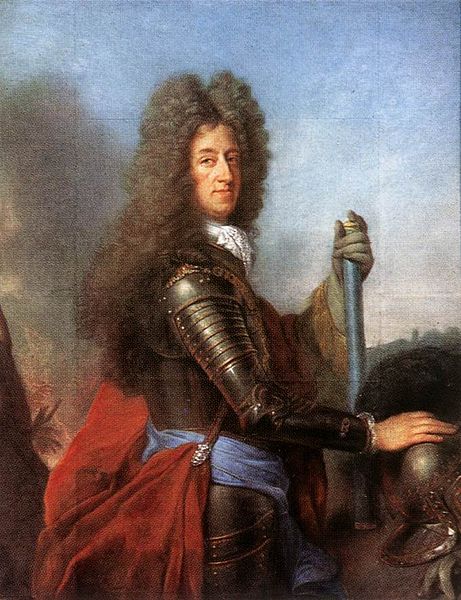The Battle of Ramillies, fought on 23 May 1706, was a battle of the War of the Spanish Succession. For the Grand Alliance – Austria, England, and the Dutch Republic – the battle had followed an indecisive campaign against the Bourbon armies of King Louis XIV of France in 1705. Although the Allies had captured Barcelona that year, they had been forced to abandon their campaign on the Moselle, had stalled in the Spanish Netherlands and suffered defeat in northern Italy. Yet despite his opponents' setbacks Louis XIV wanted peace, but on reasonable terms. Because of this, as well as to maintain their momentum, the French and their allies took the offensive in 1706.
The Battle of Ramillies by Jan van Huchtenburg
John Churchill, 1st Duke of Marlborough (1650–1722) possibly by Michael Dahl
Maximilian II Emanuel, Elector of Bavaria, (1662–1726) by Joseph Vivien
François de Neufville, Duke of Villeroi, Marshal of France, (1644–1730) by Alexandre-François Caminade. The Battle of Ramillies was Villeroi's last command.
War of the Spanish Succession
The War of the Spanish Succession was a European great power conflict fought between 1701 and 1714. The immediate cause was the death of the childless Charles II of Spain in November 1700, which led to a struggle for control of the Spanish Empire. His nominated heir was Philip of Anjou, a grandson of Louis XIV of France, whose main backers were France and most of Spain. His rival, Archduke Charles of Austria, was supported by the Grand Alliance, whose primary members included the Holy Roman Empire, the Dutch Republic, and Great Britain. Significant related conflicts include the 1700 to 1721 Great Northern War, and Queen Anne's War in North America.
Clockwise, from top left: Battle of Blenheim (13 August 1704) Battle of Ramillies (23 May 1706) Battle of Almansa (25 April 1707) Battle of Denain (24 July 1712)
Charles II, 1665–1700, last Habsburg King of Spain
Proclamation of Philip of Anjou as Philip V of Spain, Versailles, 16 November 1700
Francis Rákóczi, leader of the 1703–1711 Hungarian revolt; funded by France, this was a major distraction for Austria








